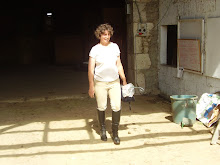I have too many ............ and too few .............
I have too much ............ and too little ...........
I have enough ................. but I don't have enough .............
I talked with some of my students about what they had too much and too little of, what they had too many and too few of, and they came up with sentences like these:
I have too
much homework and too little time.
I have too much sport and too little
rest.
I have too
many cookies and too few jars of Nutella.
I have too many flies and too few
fly-swatters.
I have enough
swim-suits but I don’t have enough sun.
I have enough
time for shopping but I don’t have enough money.
I have enough
ice-cubes but I don’t have enough whiskey.
I thought the results were positive, but that there hadn't been enough repetition for them to actually acquire the structures.
So I decided to add in a TPRS style story. I had used one in the past about a boy who had too many cats and too few baskets. We came up with the following story:
There was a
teenager whose name was James. He won
one hundred and fifty-five gold fish at the fair, but the merchant didn’t give
him enough bowls. He had a problem. He had too many gold fish and too few
bowls. Moreover he had too little fish
food and he didn’t have enough money to buy fish food. So his fish were very hungry.
Fortunately he
met a beautiful teen-aged girl whose name was Angela. She had a problem too. She had too few gold fish and too many
bowls. Also she had too much fish
food. James and Angela lived happily
ever after and had many little gold fish.
At our next meeting, I'm going to ask them to develop the story, adding in details and some dialog. Why did Angela have too many bowls? We'll get many more repetitions and by then I think that they will have heard the target structures enough times that they will have started to acquire them.
What is my goal in this type of work? It is not to ensure that my students will never ever make a mistake when they have to choose between many and much. They will occasionally make the wrong choice. But I believe that it is when they stop to think about it that they risk making the error. With enough input, their subconscious will make the right choice, simply because it "sounds right". It's the inner ear that we try to develop with TPRS.
